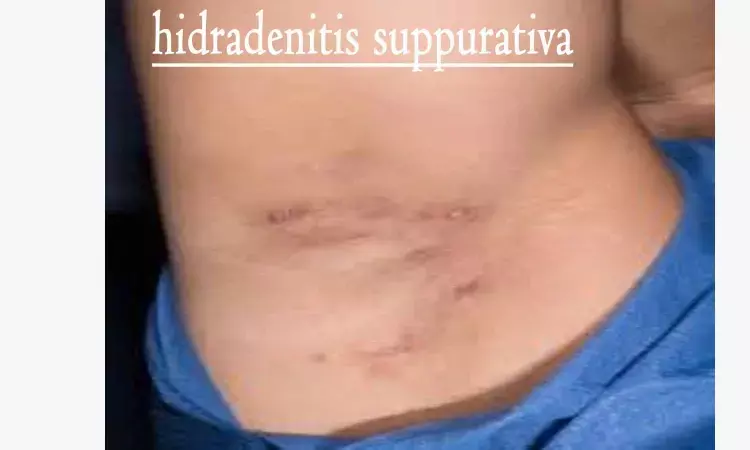- Home
- Medical news & Guidelines
- Anesthesiology
- Cardiology and CTVS
- Critical Care
- Dentistry
- Dermatology
- Diabetes and Endocrinology
- ENT
- Gastroenterology
- Medicine
- Nephrology
- Neurology
- Obstretics-Gynaecology
- Oncology
- Ophthalmology
- Orthopaedics
- Pediatrics-Neonatology
- Psychiatry
- Pulmonology
- Radiology
- Surgery
- Urology
- Laboratory Medicine
- Diet
- Nursing
- Paramedical
- Physiotherapy
- Health news
- Fact Check
- Bone Health Fact Check
- Brain Health Fact Check
- Cancer Related Fact Check
- Child Care Fact Check
- Dental and oral health fact check
- Diabetes and metabolic health fact check
- Diet and Nutrition Fact Check
- Eye and ENT Care Fact Check
- Fitness fact check
- Gut health fact check
- Heart health fact check
- Kidney health fact check
- Medical education fact check
- Men's health fact check
- Respiratory fact check
- Skin and hair care fact check
- Vaccine and Immunization fact check
- Women's health fact check
- AYUSH
- State News
- Andaman and Nicobar Islands
- Andhra Pradesh
- Arunachal Pradesh
- Assam
- Bihar
- Chandigarh
- Chattisgarh
- Dadra and Nagar Haveli
- Daman and Diu
- Delhi
- Goa
- Gujarat
- Haryana
- Himachal Pradesh
- Jammu & Kashmir
- Jharkhand
- Karnataka
- Kerala
- Ladakh
- Lakshadweep
- Madhya Pradesh
- Maharashtra
- Manipur
- Meghalaya
- Mizoram
- Nagaland
- Odisha
- Puducherry
- Punjab
- Rajasthan
- Sikkim
- Tamil Nadu
- Telangana
- Tripura
- Uttar Pradesh
- Uttrakhand
- West Bengal
- Medical Education
- Industry
Secukinumab effectively reduces symptoms and signs of hidradenitis suppurativa

Secukinumab, when administered every two weeks, was clinically successful at reducing the symptoms and signs of hidradenitis suppurativa while maintaining a favourable safety profile and a sustained response for up to 52 weeks, says an article published in The Lancet.
Patients with mild-to-severe hidradenitis suppurativa have few treatment choices. In order to determine the effectiveness of secukinumab in patients with moderate-to-severe hidradenitis suppurativa, Alexa Kimball and team conducted two randomised trials.
SUNSHINE and SUNRISE were identical phase 3 trials conducted across 219 primary sites in 40 different countries. They were multicentre, randomised, placebo-controlled, and double-blind. Patients with mild-to-severe hidradenitis suppurativa for at least a year were required to be at least 18 years old, capable of giving written informed consent, and eligible for inclusion. While receiving research medication, the included patients additionally consented to applying topical over-the-counter antiseptics to the regions where hidradenitis suppurativa lesions were present every day. Patients were disqualified if they had at least 20 fistulae at baseline, had active conditions that required continuous drug use, or satisfied other exclusion requirements.
Based on the quantity of abscesses, draining fistulae, inflammatory nodules, total fistulae, and other lesions in the hidradenitis suppurativa affected areas, the clinical response to hidradenitis suppurativa was estimated. According to the standard language criteria for adverse events, which were classified using the Medical Dictionary for Regulatory Activities terminology, the existence of adverse events and major adverse events was evaluated in order to determine safety.
The key findings of the study were:
1. In the SUNSHINE trial, hidradenitis suppurativa clinical response occurred in considerably more patients receiving secukinumab every two weeks compared to the placebo group.
2. The total number of individuals in the secukinumab every 4 weeks group and the placebo group did not differ significantly, nevertheless.
3. In the SUNRISE trial, there were noticeably more patients who experienced a hidradenitis suppurativa clinical response in the secukinumab every 2 weeks and secukinumab every 4 weeks groups compared to the placebo group.
4. Patient responses persisted through week 52 of the trials, when they came to an end.
5. In both the SUNSHINE and SUNRISE trials, headache was the most frequent adverse event according to the preferred term up to week 16.
Reference:
Kimball, A. B., Jemec, G. B. E., Alavi, A., Reguiai, Z., Gottlieb, A. B., Bechara, F. G., Paul, C., Giamarellos Bourboulis, E. J., Villani, A. P., Schwinn, A., Ruëff, F., Pillay Ramaya, L., Martorell, A., Mendes-Bastos, P., Kokolakis, G., … Muscianisi, E. (2023). Secukinumab in moderate-to-severe hidradenitis suppurativa (SUNSHINE and SUNRISE): week 16 and week 52 results of two identical, multicentre, randomised, placebo-controlled, double-blind phase 3 trials. In The Lancet (Vol. 401, Issue 10378, pp. 747–761). Elsevier BV. https://doi.org/10.1016/s0140-6736(23)00022-3
Neuroscience Masters graduate
Jacinthlyn Sylvia, a Neuroscience Master's graduate from Chennai has worked extensively in deciphering the neurobiology of cognition and motor control in aging. She also has spread-out exposure to Neurosurgery from her Bachelor’s. She is currently involved in active Neuro-Oncology research. She is an upcoming neuroscientist with a fiery passion for writing. Her news cover at Medical Dialogues feature recent discoveries and updates from the healthcare and biomedical research fields. She can be reached at editorial@medicaldialogues.in
Dr Kamal Kant Kohli-MBBS, DTCD- a chest specialist with more than 30 years of practice and a flair for writing clinical articles, Dr Kamal Kant Kohli joined Medical Dialogues as a Chief Editor of Medical News. Besides writing articles, as an editor, he proofreads and verifies all the medical content published on Medical Dialogues including those coming from journals, studies,medical conferences,guidelines etc. Email: drkohli@medicaldialogues.in. Contact no. 011-43720751


